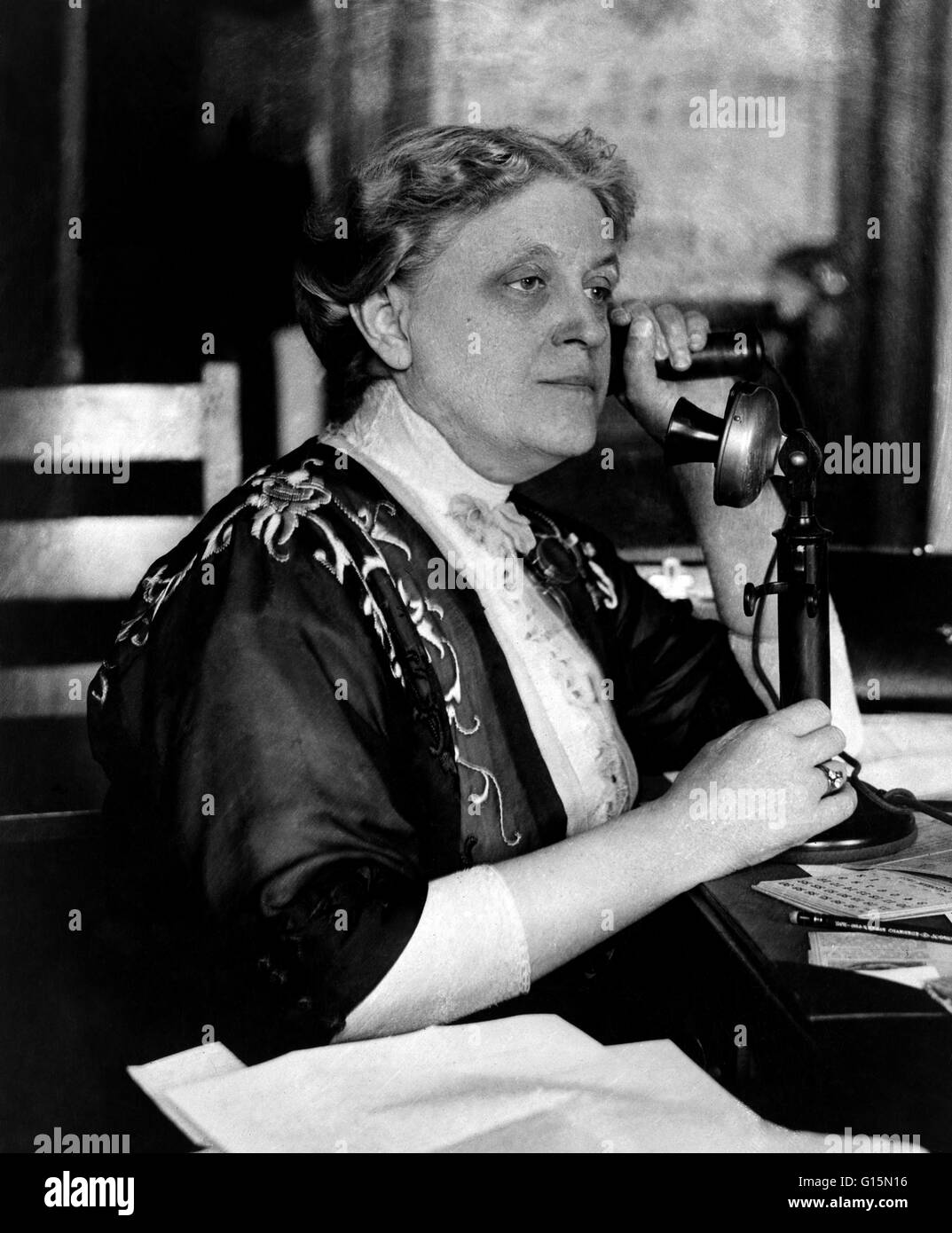Carrie Chapman Catt (January 9, 1859 - March 9, 1947) was a women's suffrage leader. She graduated from Iowa State College where she was a member of Pi Beta Phi, the valedictorian of her class, and the only woman. She became a teacher and then superintend

Image details
Contributor:
Science History Images / Alamy Stock PhotoImage ID:
G15N16File size:
44.9 MB (1.2 MB Compressed download)Releases:
Model - no | Property - noDo I need a release?Dimensions:
3600 x 4361 px | 30.5 x 36.9 cm | 12 x 14.5 inches | 300dpiPhotographer:
Photo ResearchersMore information:
This image could have imperfections as it’s either historical or reportage.
Carrie Chapman Catt (January 9, 1859 - March 9, 1947) was a women's suffrage leader. She graduated from Iowa State College where she was a member of Pi Beta Phi, the valedictorian of her class, and the only woman. She became a teacher and then superintendent of schools in Mason City, Iowa. In 1885 she married newspaper editor Leo Chapman, but he died soon after. In 1890, she married George Catt, a wealthy engineer. Their marriage allowed her to spend a good part of each year on the road campaigning for women's suffrage. She became a close colleague of Susan B. Anthony, who selected Catt to succeed her as head of the National American Woman Suffrage Association (NAWSA). She supervised dozens of campaigns, mobilized volunteers, and made hundreds of speeches. After the passage of the Nineteenth Amendment to the United States Constitution in 1920, which gave women the right to vote, she retired from NAWSA and founded the League of Women Voters as a successor to NAWSA. In the same year, she ran as the Presidential candidate for the Commonwealth Land Party. She was active in anti-war causes during the 1920's and 1930's. She pressured the US government to ease immigration laws so that Jews could more easily take refuge in America. For her efforts, Catt became the first woman to receive the American Hebrew Medal. She died in 1947 at the age of 88.